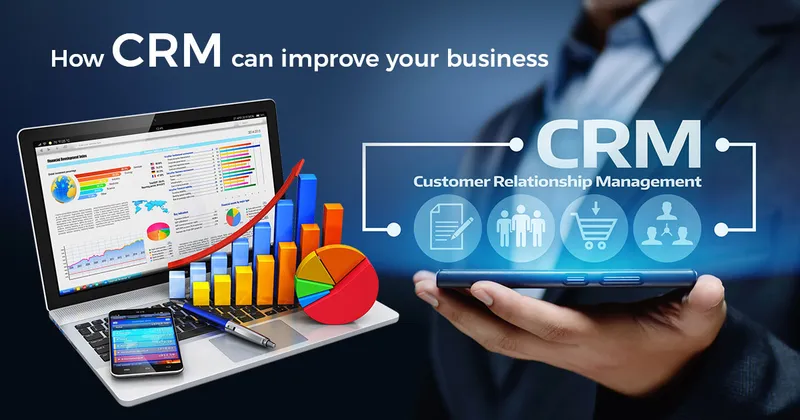

Why CRM Systems is a Must-have for Business

In this digital day & age, there is an unlimited amount of data around us, which we can scour through to find business insights. While the active data sources in the world at present are uncountable, most of it is generated directly from consumer devices and their interaction with the digital technologies. And in the world of digital marketing, this fountain of data is what powers up marketing agencies, advertisement agencies and many more sub-sectors.
Customer and lead data, which is a form of data generated on the web, is the most relevant for digital marketing purpose. But then, even this sub-stream of data needs a system that is organized enough to manage and analyse customer data on the basis of type, expenditure, purchase habits, time of usage and many more other categories. Without such system, using raw data would be extremely difficult, time-consuming and least productive in the first place. This is where Customer Relationship Management (CRM) enter the frame and address the issue like a charm. All agog about what a CRM system can offer? Here is a list to let you know:
Improved Customer Relations
The insights you collect with the help of CRM systems can help your business improve customer relations. The data generated by leads or existing customer contains a behavioural pattern, which your business can use to develop perspectives on different types of customers. This data, mostly come in from mobile sources, made possible by mobile app development companies that have mastered the art of flawlessly integrating CRMs with website, social media and mobile platforms as well. Following that, if the lead or prospective customer registered a direct query, you can send quotations according to their preferences that they reflected in the data they created.
Analyse Data
Every time a customer interacts with any type of business channel of yours, they leave some data behind. But unless and until you have tools to analyse those traces of data, it is just some unusable data for you. With a CRM system, you can analyse, sort and store data to be used in different business operations, such as campaigning, Google Ads, and much more.
Manage Effectively
A CRM system is worth investing money because of the type of functionality it offers. Prior to the invention of CRM dashboards, collection, analytics, and storage used to be handled by different processes. And due to different portals for each function, synchronization, co-ordination and streamlining of data used to be quite an inefficient way of managing customer data. But with what CRM systems offered, management of customer data is probably at its best, with even mobile app development playing a crucial role in bringing CRM systems to an endless spectrum of mobile devices.
Internal Use of Data
Data collection is an ongoing process, and from time to time, we need customer data to design a strategy for effective marketing. Earlier, we had no tools to check if we can utilize some data, which may not be relevant for a particular campaign, but seems usable in future purposes. The only option back then was to discard the data. But with CRM systems, we can check with other CRM teams for data requirements and even sell data to needy companies who could utilize this data. This is particularly helpful when your data collections channel are linked to different CRM system based on the categories of customers.
Planning and Consistent Learning
The data that is collected through CRM systems can be utilized in two ways: direct and indirect. Direct applications pertains to building insights and responding to customer queries in real-time with quotations, based on their requirements. Indirect applications of CRM system relates to building long-terms insights in marketing, and planning marketing campaigns accordingly. Over a period of time, CRM systems help businesses improve their customer-specific outlooks and allows them to increase the rate of lead generation.
CRM systems, over the time, have improved a lot and offers much more than they were initially meant to. This happened due to advancements in digital technology and different tech companies working at it to improve sources and methods of data collection. Some of the biggest social media platforms are actively involved at improving CRM systems for businesses, and the greatest example of this is Facebook Lead Ads, which sends lead data directly to the CRM system linked to a business’ Facebook page, which can later be downloaded and sent to the website CRM of the business. In coming years, seeing a boom in the use of CRM systems is something that is quite expected.




